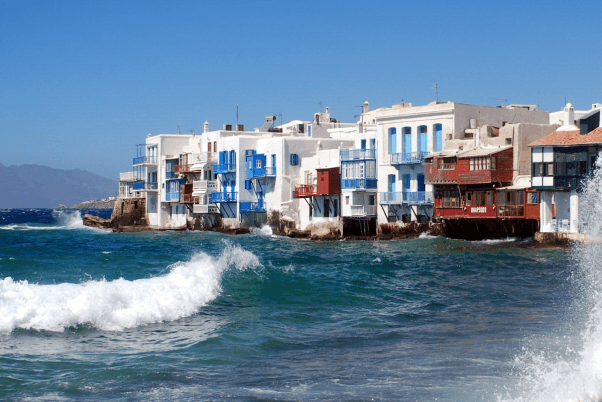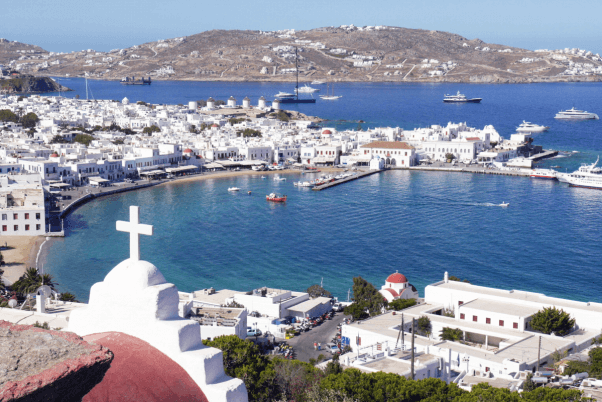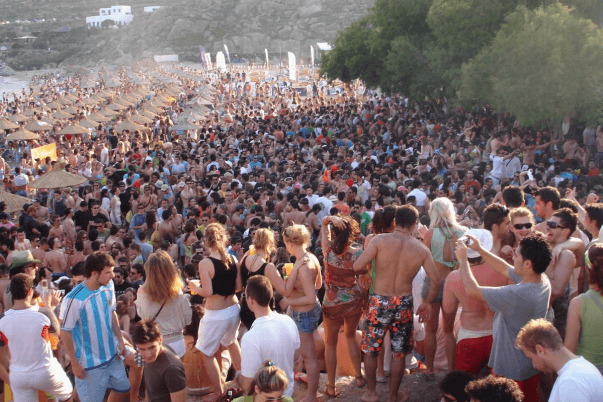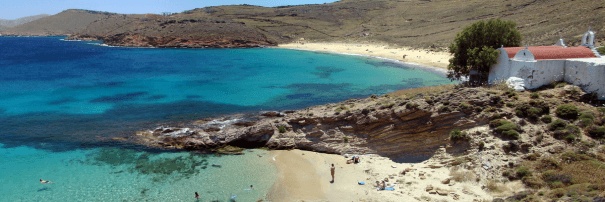 Mykonos weather is typical of the Mediterranean climate. Summer is relatively warm and dry while the winter is mild and rainy. Humidity occurs mainly in winter and early spring. The extended periods of sunshine throughout most of the year are longer than other parts of Greece and therefore the island gets fewer rains. Let’s not forget that the nearby island of Delos was in ancient times the sacred island of the god of light Apollo.
Mykonos weather is typical of the Mediterranean climate. Summer is relatively warm and dry while the winter is mild and rainy. Humidity occurs mainly in winter and early spring. The extended periods of sunshine throughout most of the year are longer than other parts of Greece and therefore the island gets fewer rains. Let’s not forget that the nearby island of Delos was in ancient times the sacred island of the god of light Apollo.
Mykonos is called “the island of the winds” and there are not few who believe that this is actually the reason for the absence of trees from the island. On the other hand, the presence of numerous windmills confirms the reputation of Mykonos weather regarding the winds.
The prevailing winds in summer, almost every day, are north and northeast (meltemi) that mitigate the summer heat. North winds, up to very strong, prevail also in winter while in February and March they may turn up even squally. At spring south and southeast winds prevail while at autumn winds of various directions are usually light to dead calm. In conclusion, during the high tourist season and usually from 10 July to 20 August strong N-NW winds often prevail so in this period the island is ideal for yachtsmen in the know. Those who wish to try a sailing vacation and also wish to enjoy the cosmopolitan life and the most vibrant nightlife of Mediterranean at the peaking, may simply hire a skipper. At any rate and depending on Mykonos weather, the island offers many options of lee beaches for mooring and swimming.
Mykonos weather is associated with two of the most difficult passages in the Aegean when blowing strong N and NW winds.
Those are the strait between that and Ikaria (Icario) and the channel which forms with Tinos (Tsiknias). In Icario strait the wind blows at least 10 knots more than in the region and the wave height is more than full in what corresponds to the intensity of the wind. In Tsiknias channel the gusts that appear with a strong meltemi raise sharply wind intensity and bode a sail blown or a mast broken, usually at the spreader, if the skipper has not foreseen for a proper reefing, while the sea is in a very confused condition with waves that can come under different angles or even to be coordinated.
Typical of Mykonos weather and region’s hardship is that according to the Homeric tradition, there Poseidon chastised Ajax Locrian returning from Troy for irreverence.
Further reading:



